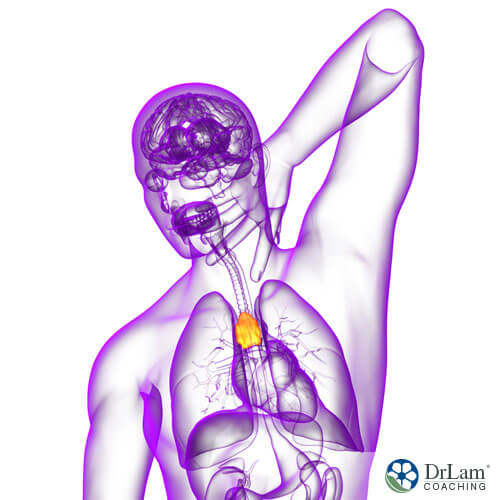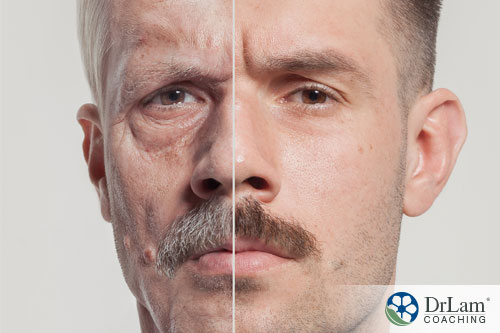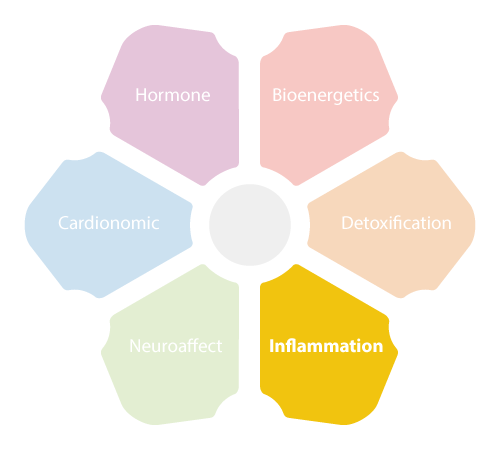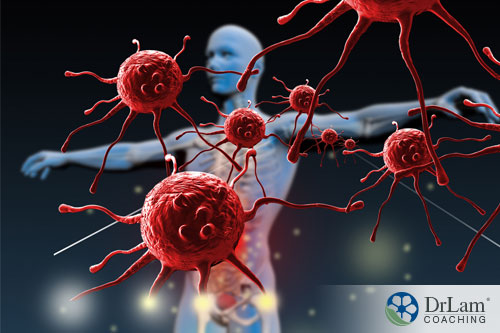 The thymus gland protects you long after it's gone. Many people have never heard of this particular gland and for good reason. It begins to disappear around puberty. During its short existence, it plays a significant role in a person’s health over their lifetime as it's responsible for creating essential cells that you’ll need for the rest of your life. However, there seems to be some mystery surrounding the thymus gland and its oh-so-amazing disappearing act. Could its non-existence be related to the aging process? And to the effects of aging on the immune system? Would replacing some of its by-products after it's gone offer longevity and additional health benefits?
The thymus gland protects you long after it's gone. Many people have never heard of this particular gland and for good reason. It begins to disappear around puberty. During its short existence, it plays a significant role in a person’s health over their lifetime as it's responsible for creating essential cells that you’ll need for the rest of your life. However, there seems to be some mystery surrounding the thymus gland and its oh-so-amazing disappearing act. Could its non-existence be related to the aging process? And to the effects of aging on the immune system? Would replacing some of its by-products after it's gone offer longevity and additional health benefits?
First of all, let’s take a look at what exactly the thymus gland is and does. The gland is located between the lungs, just behind the sternum in the front of your chest. It’s a pink and gray organ with two lobes. As mentioned already, the gland is not needed for your entire lifespan, just at the start. In fact, it’s unlike almost every other organ in your body because it is the largest during childhood and slowly starts to shrink around the age of 14, during puberty. At its maximum, the thymus gland weighs about 1 ounce. But by the age of 75, it has completely disappeared and been replaced by fat. However, while it’s still functioning, it carries a huge responsibility.
Thymosin is one of the four hormones secreted by the thymus gland and its primary responsibility is to stimulate the development of T-lymphocytes or T cells, important cells of the immune system that ward off disease. The process begins when white blood cells pass through the thymus gland and are transformed into T cells. Once they’re fully matured, they move to the lymph nodes—located throughout the body—and help support the immune system in fighting against illness and disease.
The T cells are white blood cells that protect the body from viruses and infections. When the thymus gland is active before birth and throughout childhood, it plays a vital role in the body’s lymphatic and endocrine systems by protecting the body from autoimmunity, when the body’s immune system turns against itself. By the end of puberty, your thymus gland has produced all the T cells you’ll use throughout your lifetime.
Based on the slow decline of the immune system with age, researchers have started to question whether a correlation exists between the aging process, the immune system, and the thymus gland. Does the decline of the thymus gland cause a chain of events that weaken the body’s defense system with age? Could it possibly be the key to aging? And if so, would replacing certain hormones produced by the thymus gland slow the aging process and improve longevity? Studies are only in the beginning phases so it’s too soon to tell. But sufficient evidence suggests further testing is merited.
The thymus gland has become a target of interest for researchers because of its complex relationship with the immune system, a vital component of health and wellness. The immune system has two important functions. This first is acting as a cellular gatekeeper through which newcomers are either welcomed or denied entry. All substances that enter the body must distinguish themselves as friend or foe. Friends are usually produced by the body itself, whereas anything labeled as a foe is considered foreign or abnormal. The second function is generating the antibodies to defend and protect the body against foreign substances such as parasites, viruses, bacteria, and cancer cells.
As a person grows and ages, their immune system weakens and becomes less aggressive. Its natural surveillance is also more likely to make mistakes and won’t always recognize the differences between friend and foe. This can cause the body to attack its own cells and tissues. These mistaken attacks are usually described as autoimmune diseases such as rheumatoid arthritis. Autoimmune responses are suspected of playing a part in heart disease.
Moreover, weakening of the immune system and its defenses is linked to an increase in cancer risk with age.
A lot of research is still needed to fully understand the correlation between the decline of the immune system and age. What we do know is that aging is the result of extremely complex processes. Whether weakening of the immune system is the main culprit in aging or just one of many factors working remains up for debate. However, the immune system does contribute to many age-related diseases.
Many researchers support the idea that immunology and aging go hand and hand. Over the past decade, Dr. Roy L Walford from the University of California has discovered several links proving evidence that the immune system declines with age.
Dr. Walford proposed several other theories as well:

A number of interesting studies suggest thymus hormone supplements can help strengthen the immune system and ward off respiratory infections such as asthma, hay fever, and sinusitis. All the conditions are triggered by an overactive immune system, resulting in inflammation that is usually just bothersome, but sometimes dangerous and potentially life-threatening. Taking a synthetic form of the thymus hormone, called Thymomodulin calms the immune system, thereby reducing and lessening the severity of attacks. The supplement can be purchased over the counter in liquid form, pills, or capsules. Thymus supplements derived from the thymus gland of calves can also be found.
Before beginning any new supplement, it’s always important to check with your health care provider. Although a thymus hormone supplement could be beneficial, it’s still new and there are not enough studies yet to back its efficacy. This is particularly important if you are suffering from Adrenal Fatigue, since any new supplements you take could worsen your condition. That’s why it’s so important to seek out an Adrenal Fatigue specialist who can help guide you through the initial recovery process and ensure you’re on the right track. The thymus gland is still not completely understood. But with further research, supplements like this could be powerful tools in the future for boosting the immune system and reducing inflammation.
Besides the disappearing thymus gland and weakening of the immune system, bodies changes in many other ways during the aging process.
Emotional stress may also speed up the aging process. Chronic stressors such as untreated depression, anxiety attacks, social isolation, and long-term financial difficulties can accelerate aging by shortening of your telomeres. Everyone inherits 46 chromosomes—23 from your mother and 23 from your father—and each chromosome is made up of a library of DNA. All the cells in your body contain copies of this DNA, which carry the instructions your cells need to function. Telomeres are caps at the end of your DNA that protect it from damage. But with aging, telomeres begin to shorten but are unable to regrow properly, which eventually weakens the integrity of your cells. Stress can speed up this shortening process and as a result, your DNA will become damages more quickly, leading to premature aging.
 When chronic stress hits, it affects your entire body in negative ways. Adrenal Fatigue Syndrome (AFS) is a condition caused by extreme physical and psychological stress that weakens your adrenal glands rendering your body incapable of producing essential hormones. When the hormone levels are unbalanced or depleted, your entire body is affected. This is because your body’s main mechanism for dealing with stress is the NeuroEndoMetabolic (NEM) Stress Response System made up of six interconnected circuits: Hormone, Bioenergetics, Detoxification, Inflammation, Cardionomic, and Neuroaffect.
When chronic stress hits, it affects your entire body in negative ways. Adrenal Fatigue Syndrome (AFS) is a condition caused by extreme physical and psychological stress that weakens your adrenal glands rendering your body incapable of producing essential hormones. When the hormone levels are unbalanced or depleted, your entire body is affected. This is because your body’s main mechanism for dealing with stress is the NeuroEndoMetabolic (NEM) Stress Response System made up of six interconnected circuits: Hormone, Bioenergetics, Detoxification, Inflammation, Cardionomic, and Neuroaffect.
Stress impacts every cell in the body. It affects the way our body’s systems interact, damages DNA, and lowers your immune system. Along with the gradual depletion of the thymus gland, the affects your lifespan.
A close relationship exists between the immune system, inflammation, and chronic illnesses such as AFS. The inflammation circuit keeps the body healthy and running smoothly in any situation. However, when the body’s natural response system is left unchecked and uncontrolled, chronic inflammation and illnesses can occur.
Inflammation can be local, or it can occur all over the body. Those suffering from heart disease have localized inflammation in their arteries, diabetes is associated with inflammation in the pancreas, and Alzheimer's disease leads to inflammation of the brain. On the other hand, exposure to environmental toxins or adverse reactions to food typically results in inflammation throughout the entire body, affecting both mental and physical health, as well as longevity.
Some of the most common health issues associated with inflammation include:
 Although the thymus gland remains a mystery in the medical world, its relationship to inflammation, illness and longevity are clear. However, further research still needs to be done before a thymus hormone supplement is widely available for treating certain conditions. If you’re suffering from AFS or another chronic condition, be sure to practice extreme caution before beginning any new supplement or diet. Dependent on your condition, your body may be sensitive, potentially resulting in an adverse reaction. Always consult with a health care practitioner before beginning any new health regime.
Although the thymus gland remains a mystery in the medical world, its relationship to inflammation, illness and longevity are clear. However, further research still needs to be done before a thymus hormone supplement is widely available for treating certain conditions. If you’re suffering from AFS or another chronic condition, be sure to practice extreme caution before beginning any new supplement or diet. Dependent on your condition, your body may be sensitive, potentially resulting in an adverse reaction. Always consult with a health care practitioner before beginning any new health regime.
© Copyright 2020 Michael Lam, M.D. All Rights Reserved.
The thymus gland is responsible for important components of the immune system. Scientists are just now finding evidence to support the connection to longevity. Research is currently underway to find out a synthetic thymus hormone can prevent disease, boost well-being, and aid recovery from illnesses—its effectiveness is not proven yet.
